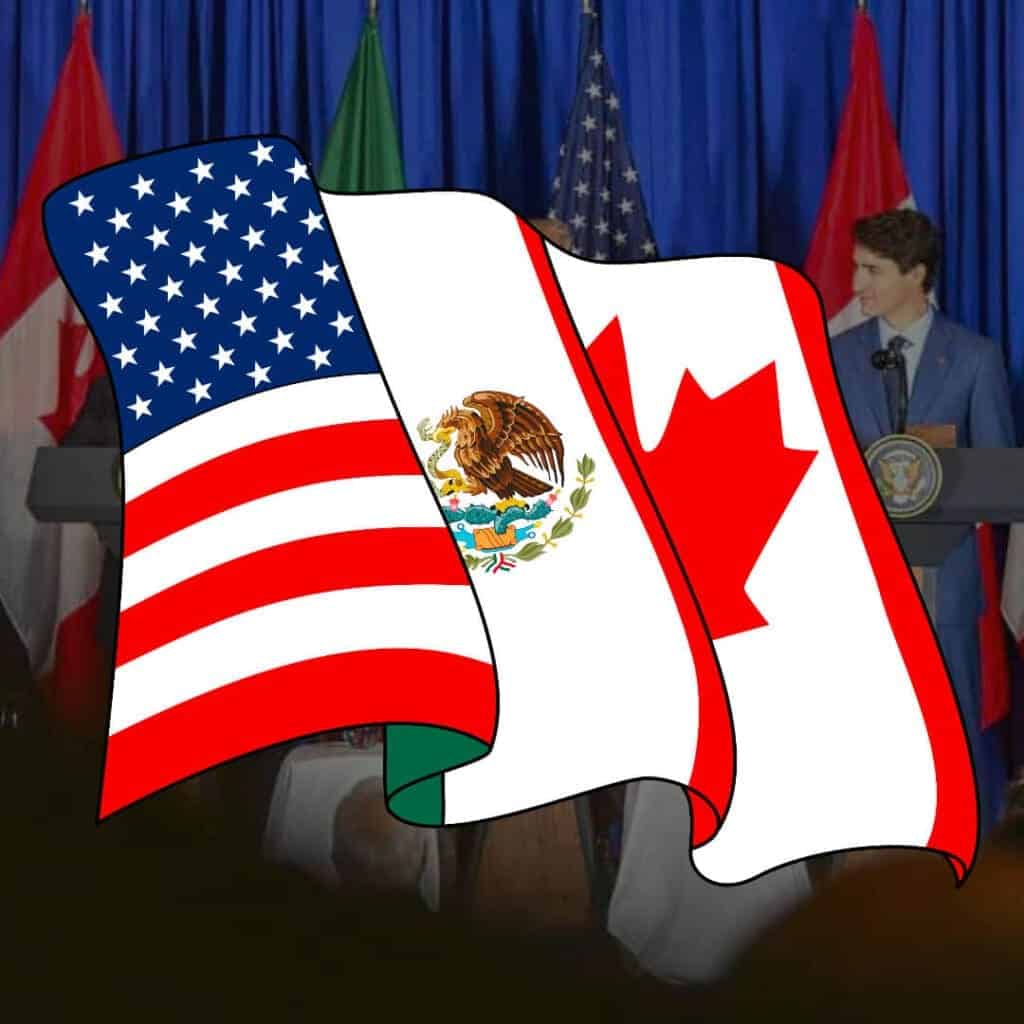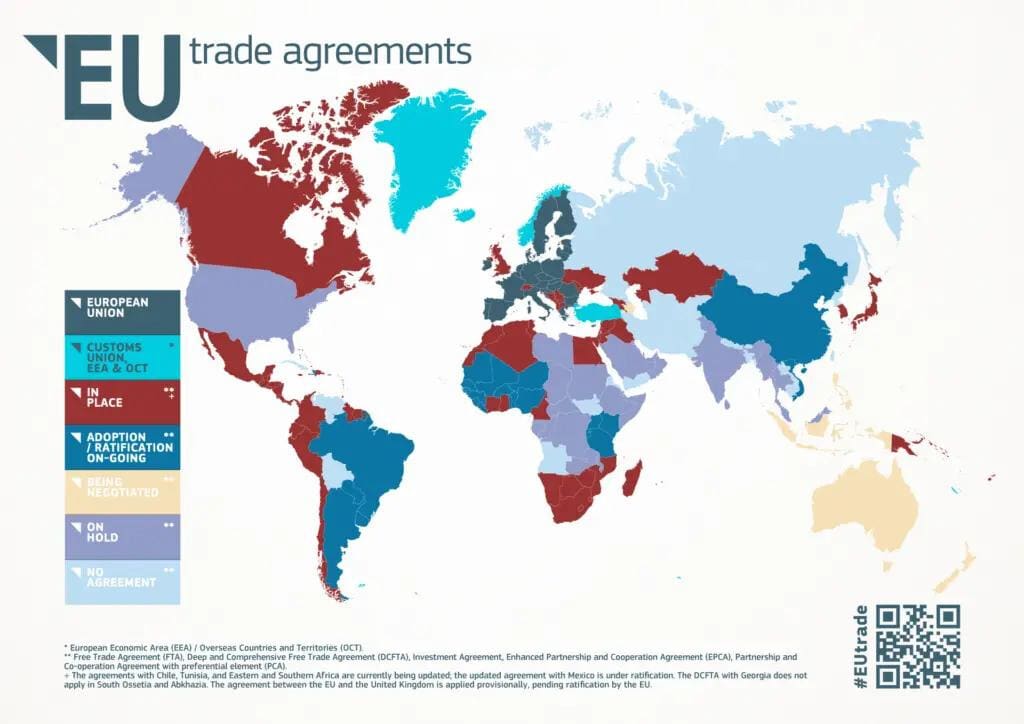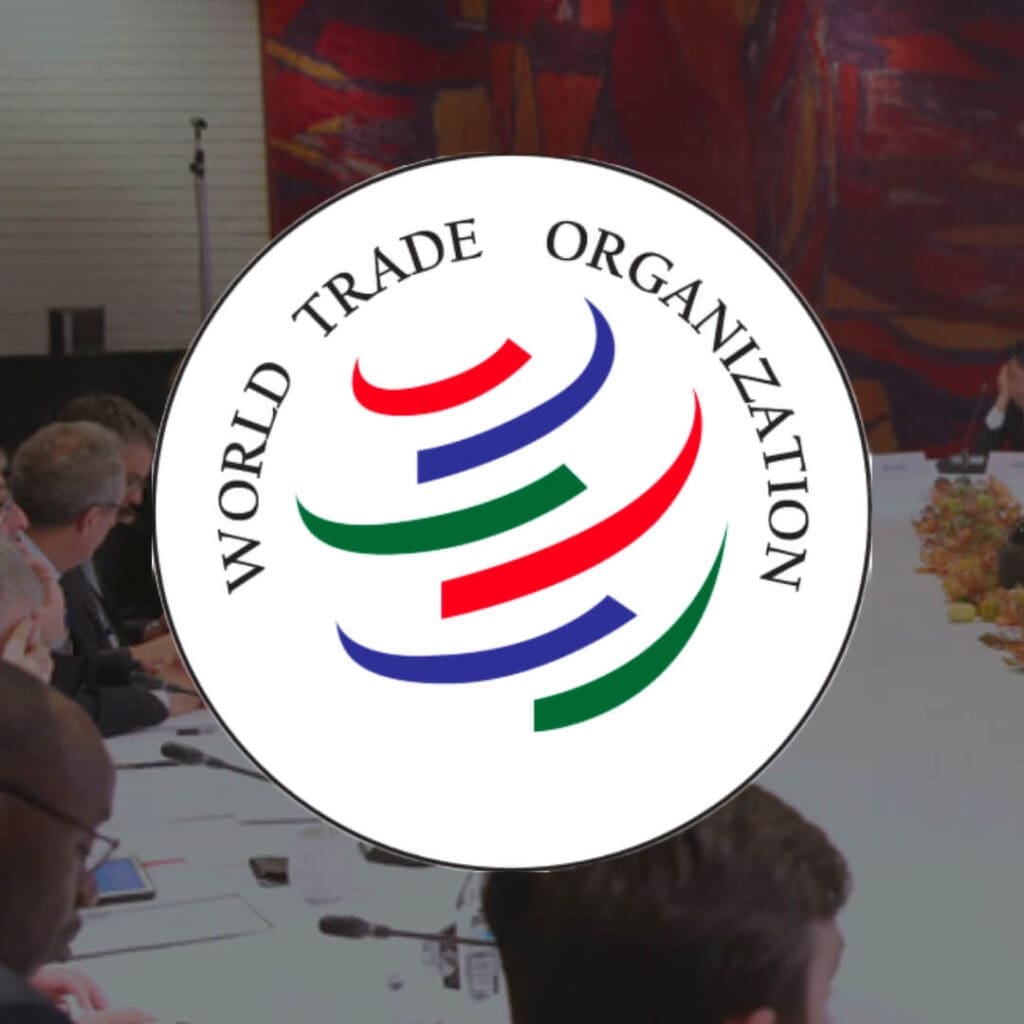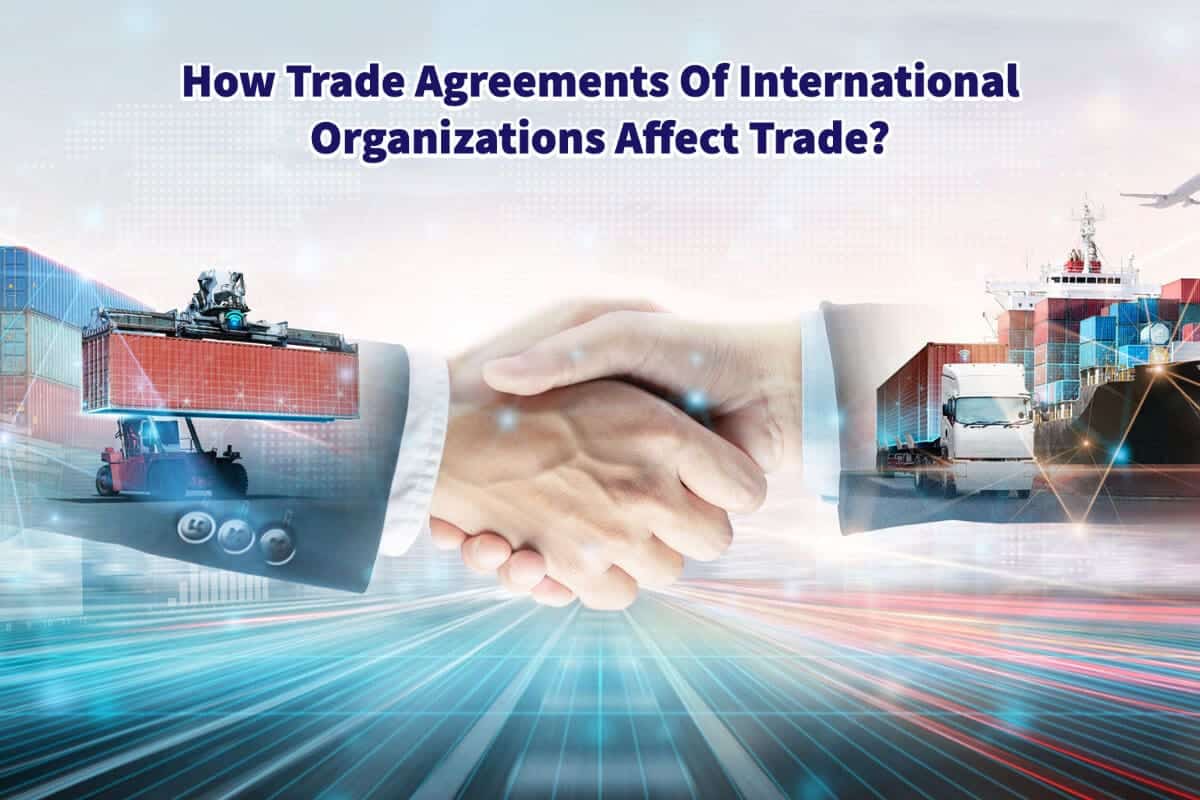International trade has become an integral part of the global economy. With countries importing and exporting goods and services from one another, a clear framework must be in place to regulate these transactions.
International Trade Agreements are an essential part of Global Trade. These agreements are negotiated by international organizations to help govern international trade between countries and regions. They help establish guidelines and rules for trade while providing mutual benefits for all parties involved.
Table of Contents
- How Trade Agreements Affect Global Trade
- Understanding International Trade Agreements
- Major International Trade Agreements And Their Impact On Trade
- The Impact Of Trade Agreements On Businesses
- 10 Ways Mondoro Champions Socially-Conscious Home Decor and Furnishing Production
- Frequently Asked Questions
- Related Content
Read on as we will examine the impact of trade agreements on global trade, why traders need to understand them and look at some of the significant agreements and their impact on trade.
How Trade Agreements Affect Global Trade
Trade agreements play a vital role in shaping the global economy. They help to create a stable environment for international trade by providing a set of rules and regulations that all parties must follow.
International Trade Agreements can also help to promote economic growth by reducing barriers to trade and increasing market access. On the other hand, trade agreements can also hinder trade.
For example, International Trade Agreements may introduce new regulations that make it difficult or costly for businesses to comply with, or they may impose tariffs and other trade barriers that restrict access to specific markets.
Understanding International Trade Agreements
Traders need to understand trade agreements because they can significantly impact their ability to do business. All global traders need to understand the significant International Trade Agreements.
For example, suppose a trade agreement imposes new regulations on a particular product or service. In that case, traders must ensure they comply with these regulations to continue to trade in that market.
Similarly, suppose a trade agreement imposes tariffs or other trade barriers. In that case, traders must understand the implications of these barriers on their ability to access new markets or sell their products and services. Failure to comply with the terms of a trade agreement can result in penalties, fines, or other sanctions.
Major International Trade Agreements And Their Impact On Trade
International trade agreements are essential for every major global trader or anyone in the international supply chain to understand. Here are some of the five most important international agreements.
North American Free Trade Agreement (NAFTA)

NAFTA, or the North American Free Trade Agreement, was signed in 1992 by the United States, Canada, and Mexico and took effect in 1994. It aimed to reduce trade barriers between these countries, increase investment, and promote economic growth.
Since its implementation, NAFTA has significantly impacted trade between these countries. NAFTA immediately lifted tariffs on many goods produced by these three nations.
The agreement also calls for eliminating barriers to cross-border investment and the movement of goods between these three countries.
Trans-Pacific Partnership (TPP) And CPTPP
The TPP was signed in 2016 by twelve countries, including the United States, Japan, Canada, and Australia. It aimed to reduce tariffs and trade barriers between these countries, increase market access, and promote economic growth. It was considered a key initiative in Asia for the Pres Obama administration.

However, in 2017, the United States withdrew from the agreement. It was later renamed the Comprehensive and Progressive Agreement for Trans-Pacific Partnership (CPTPP), which came into force in 2018 without the United States.
The CPTPP has significantly impacted trade between its member countries, promoting economic growth and increasing market access.
European Union (EU) Trade Agreements

The EU has signed numerous trade agreements with countries and regions worldwide, including Canada, Japan, and South Korea. These agreements have helped to promote economic growth and reduce trade barriers between these countries.
For example, the EU has or is negotiating trade agreements between the EU and countries like Mexico, Indonesia, and India,
African Continental Free Trade Area (AfCFTA)
The AfCFTA is a free trade agreement signed by 54 of the 55 African Union member states. The agreement aims to reduce these countries’ tariffs and other trade barriers, increase market access, and promote economic growth.

It came into force in 2021 and is expected to significantly impact trade in Africa, creating new business opportunities and promoting economic development. At the heart of the AfCFTA is to have Africa be one market.
World Trade Organization
The World Trade Organization, or WTO, is an international organization that oversees global trade rules and regulations. It provides a framework for negotiating and implementing trade agreements between member countries.

The WTO has significantly impacted global trade, helping to reduce trade barriers and increase market access. However, it has also faced criticism for being too slow to adapt to changing economic conditions and for not doing enough to address issues like income inequality and environmental degradation.
The Impact Of Trade Agreements On Businesses
Trade agreements can significantly impact businesses, both positive and negative. On the one hand, they can create new business opportunities by reducing trade barriers and increasing market access.
For example, a business that exports goods to a country that has signed a trade agreement with its home country may benefit from reduced tariffs and increased market access.
On the other hand, trade agreements can also create new challenges for businesses. For example, a business may need to comply with new regulations or standards to continue trading in a particular market.
International trade agreements play a critical role in shaping the global economy. They help to promote economic growth, reduce trade barriers, and increase market access.
International trade agreements can also create new challenges for businesses, and traders must understand the impact of these agreements on their ability to do business. By staying informed about trade agreements and their implications, traders can take advantage of new opportunities while mitigating risks or challenges.
10 Ways Mondoro Champions Socially-Conscious Home Decor and Furnishing Production
In a world that’s more connected and conscious than ever, Mondoro stands at the forefront of marrying design with responsibility.
If you’re looking to infuse a sense of social conscience into your home decor and furnishings, here’s how we can guide and assist you on this noble journey:
- Ethical Sourcing: At Mondoro, we prioritize sourcing materials from responsible and ethical suppliers. We ensure that every product bearing our name originates from a place of integrity.
- Collaboration with Local Artisans: We believe in empowering local communities. By partnering with local craftsmen, we ensure that traditional skills are preserved, and artisans receive fair compensation.
- Sustainable Materials: Our commitment to the planet is unwavering. We continually seek out and utilize sustainable materials, ensuring our products are as kind to the environment as they are beautiful.
- Transparent Practices: We maintain complete transparency in our operations. We aim to set an industry standard and inspire trust by sharing our processes and sources.
- Community Engagement: Beyond just business, we engage with communities to understand their needs and challenges. This helps us in devising strategies that benefit not just us, but the entire community.
- Continuous Education: We invest in continuous learning to stay updated on socially responsible practices. By doing so, we ensure that our methods are not just current, but also future-ready.
- Fair Wages and Safe Environments: Every individual in the Mondoro family is invaluable. We are staunch advocates for fair wages and safe working conditions, ensuring that our team always feels valued and secure.
- Innovative Eco-Friendly Designs: Our design team is always looking for creative ways to incorporate eco-friendly elements into our products without compromising on aesthetics.
- Quality Assurance: A product’s longevity reduces wastage and is a hallmark of responsibility. We ensure that every Mondoro product undergoes rigorous quality checks, guaranteeing durability and reducing the need for frequent replacements.
- Feedback and Growth: We believe growth is a collective endeavor. We actively seek feedback from our stakeholders to further refine our socially conscious practices.
At Mondoro, our vision transcends beyond creating beautiful products; it’s about crafting with a conscience. Partner with us, and together, let’s pave the way for a future where home decor resonates with responsibility, beauty, and purpose.
Find out more about how Mondoro can help you create, develop, and manufacture excellent home decor and home furniture with fairtrade and ethical sourcing in mind – don’t hesitate to contact me, Anita. Check out my email by clicking here or become a part of our community and join our newsletter by clicking here.
Mondoro gives out a FREE Lookbook to anyone interested. You can receive a copy of our latest Lookbook by clicking here.
Listen to our Podcast called Global Trade Gal. You can find it on all major podcast platforms. Try out to listen to one of our podcasts by clicking here.
Subscribe to our Mondoro Company Limited YouTube Channel filled with great videos and information by clicking here.
Frequently Asked Questions
What are trade agreements of international organizations?
Trade agreements of international organizations are agreements between countries or groups of countries that aim to facilitate and regulate trade by reducing barriers, promoting fair competition, and establishing rules and standards.
How do trade agreements affect international trade?
Trade agreements can have various effects on international trade. They can increase market access, lower tariffs, eliminate trade barriers, harmonize regulations, and promote investment, leading to increased trade flows between participating countries.
What are the benefits of trade agreements?
Trade agreements can bring numerous benefits, such as expanded market opportunities, increased export potential, access to a wider range of goods and services, enhanced competitiveness, economic growth, and job creation.
Do trade agreements promote fair trade practices?
Yes, trade agreements aim to promote fair trade practices by establishing rules and standards that govern issues such as intellectual property rights, labor rights, environmental protection, and anti-dumping measures.
Can trade agreements lead to a loss of domestic industries and jobs?
Trade agreements can impact domestic industries and jobs. While they may create opportunities for certain industries, they can also result in increased competition and the need for adjustment in others, potentially leading to job losses or industry restructuring.
How do trade agreements handle trade disputes between participating countries?
Trade agreements typically include dispute settlement mechanisms that provide a framework for resolving conflicts and disputes related to trade, ensuring that participating countries have recourse to a fair and impartial process.
Do trade agreements encourage foreign direct investment (FDI)?
Yes, trade agreements can encourage foreign direct investment by providing greater certainty, transparency, and protections for investors, as well as by facilitating the movement of capital and removing investment barriers.
Can trade agreements address environmental and labor standards?
Yes, trade agreements can include provisions related to environmental and labor standards, promoting sustainable development and ensuring that trade is conducted in a manner that respects environmental protection and workers’ rights.
Related Content
What Are The Different Types Of Ethical Sourcing?
Ethical sourcing encompasses the environment, labor protection, safety standards, and social responsibility as part of the global supply chain. For a company to say they use ethical sourcing or have an ethical sourcing policy, they need to include environmental and social responsibility in their global sourcing supply chain policy.
You can discover more by reading What Are The Different Types Of Ethical Sourcing? by clicking here.
Ethical Sourcing And Why It Is Important
Ethical sourcing is about a company, brand, corporation, or individual ensuring that their products are obtained through a sustainable and responsible method. A recently Open Text Survey showed that 83% of all consumers globally consider ethical sourcing an essential aspect of their buying decisions.
You can discover more by reading Ethical Sourcing And Why It Is Important by clicking here.
Social Environmental Responsibility Fights Social Challenges
What is apparent to me and many others is that how an individual, company, or brand looks at their social, environmental responsibility matters in today’s world. Companies today need to balance their needs for profits with the ecosystem, poverty, environment, and climate change.
You can discover more by reading Social Environmental Responsibility Fights Social Challenges by clicking here.

